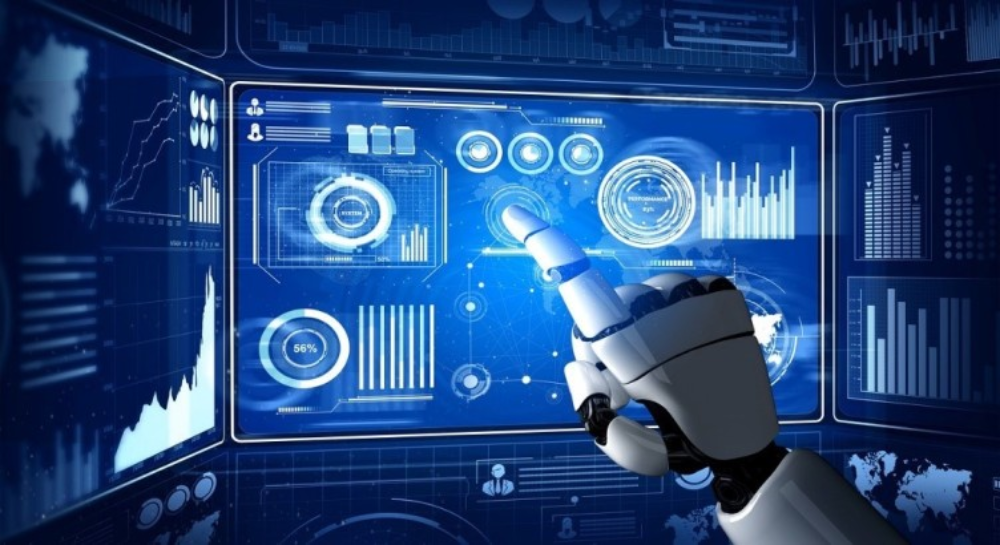Comments
- No comments found

The rapid development of artificial intelligence (AI) has transformed various industries.
Artificial intelligence has raised significant legal implications, particularly in the realm of intellectual property (IP) law.
As AI systems become increasingly capable of creating, analyzing, and reproducing creative works, questions arise regarding the ownership, protection, and infringement of AI-generated content. In this article, we will explore the legal landscape surrounding AI and its impact on intellectual property rights.

Traditionally, copyright law grants ownership of creative works to human authors. However, the emergence of AI challenges this paradigm as AI systems can autonomously generate original works, such as paintings, music compositions, and written articles. The question of ownership arises: Should AI-generated works be attributed to their human programmers or the AI system itself?
Current legal frameworks often attribute authorship to human creators, as AI is considered a tool or instrument used by humans. Nevertheless, debates are underway regarding whether AI should be recognized as an autonomous creative entity deserving its own copyright protection. Several countries, including the UK and Hong Kong, have introduced legislation granting limited copyright protection to AI-generated works, with ownership vested in the person who made the arrangements for the AI to create the work.
While AI-generated works may qualify for copyright protection, challenges exist in proving originality and creativity. Copyright law typically requires human authorship, involving the exercise of skill, judgment, and creativity. As AI systems generate content based on algorithms and pre-existing data, questions arise regarding the level of originality achieved by AI and the role of human input.
To address these challenges, legal systems may need to adapt to recognize AI as a legitimate creator and consider alternative criteria for assessing originality in AI-generated works. This could involve assessing the novelty and creativity of the AI algorithms used or the unique combinations of data inputs that lead to the creation of new works.
The rise of AI raises concerns about potential copyright infringement and the liability of AI systems and their human operators. If an AI system generates content that infringes upon existing copyrights, who should be held responsible: the AI system, its developers, or the end-users?
Current legal frameworks generally hold human operators responsible for the actions of AI systems under their control. However, assigning liability can be challenging when AI systems operate autonomously or are deployed in complex networks. Courts and legislatures will need to grapple with establishing clear guidelines and standards to determine liability in cases involving AI-generated content.
AI systems rely on vast amounts of data for training and learning purposes. The collection, use, and storage of data by AI systems raise concerns about data protection and privacy. Intellectual property rights may intersect with data protection regulations, particularly when AI systems process personal data.
To navigate this intersection, legal frameworks need to strike a balance between fostering innovation and protecting individuals' rights. This includes ensuring compliance with data protection laws, obtaining informed consent for data usage, and implementing measures to safeguard data privacy and security.

AI systems are not immune to biases inherent in the data they are trained on, which can result in biased outcomes and discriminatory practices. Intellectual property law must grapple with the ethical implications of AI-generated works that perpetuate biases or infringe upon moral or cultural values.
Legal frameworks should encourage transparency and accountability in AI systems, requiring developers to disclose the methodologies used, the data sources, and any potential biases. Addressing these ethical considerations ensures that AI-generated works respect societal values and uphold fundamental principles of fairness and non-discrimination.
The integration of artificial intelligence into the creative realm poses intricate challenges for intellectual property law. The ownership, protection, and infringement of AI-generated works require careful consideration and adaptation of existing legal frameworks. Determining ownership of AI-generated works remains a complex issue. While current laws typically attribute authorship to human creators, some jurisdictions have introduced legislation recognizing limited copyright protection for AI-generated works. These developments acknowledge the role of AI as a creative entity and raise questions about the need for a new legal framework to address AI's unique contributions.
Protecting AI-generated works necessitates reevaluating traditional standards of originality and creativity. As AI systems rely on algorithms and pre-existing data, legal systems must determine alternative criteria for assessing the originality and novelty of AI-generated content. This could involve considering the uniqueness of the algorithms used or the innovative combinations of data inputs that lead to the creation of new works.
Bhumesh is the Managing Partner of Corp Comm Legal, an Indian law firm. He is ranked among the Top 100 Indian corporate lawyers. He is advising domestic and foreign companies on M&A, joint ventures, corporate - commercial issues. Besides, he has written a book on Drafting of Commercial Agreements, has a couple of books in pipeline and trains students and professionals on Drafting Skills and corporate laws. He writes regularly on legal, business & other issues and is a guest faculty lecturer with educational institutes. Bhumesh holds a Bachelor of Laws (LLB) from the University of Delhi and a further qualification in International Law and Legal Studies from College of Law, York.
Leave your comments
Post comment as a guest